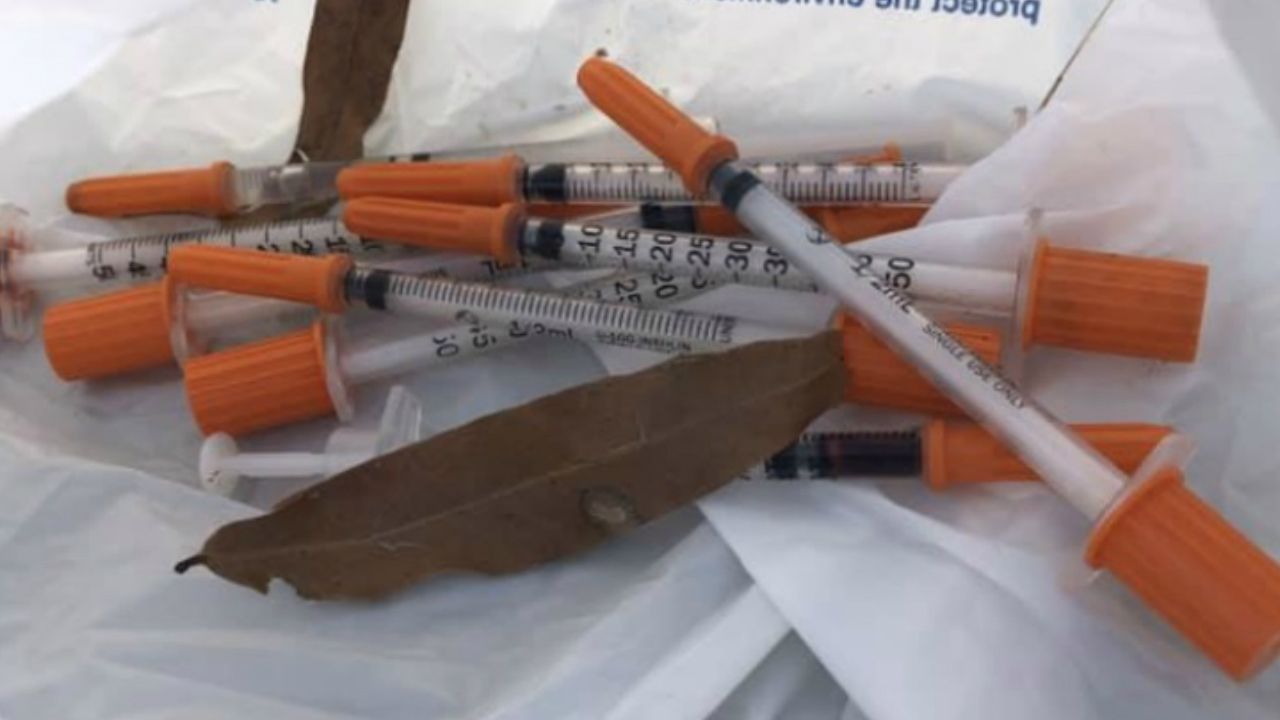HILLSBOROUGH COUNTY, Fla. — Hillsborough County Commissioners have taken a major step towards establishing the first ever needle exchange program in its history.
- Manatee County passed a similar ordinance last month
- All Hillsborough deputies now carry Narcan to help with overdoses
- Florida passed a law last year allowing counties to implement ordinances
In a 5-1 vote on Wednesday, the board directed their county attorney to prepare an ordinance and public hearing at an upcoming meeting to make it official. Commissioner Stacy White was the lone dissenter.
“We are just so overtaken by opioid addiction in Hillsborough County,” said Commissioner Sandy Murman, who sponsored the measure. “We cannot turn our back on these drug addicts any longer. We have to help them. This is a way to extend and help those who really need this.”
Needle exchange programs have been legal for decades in some states, but Florida lawmakers only approved allowing counties to implement their own programs in the last year. The proposal passed unanimously in the Republican-controlled state Senate and had only three dissenting votes out of 114 members in the House, as the state contends with an escalating epidemic of deaths from heroin and fentanyl overdoses.
The first needle exchange program began as a pilot program approved by the Legislature in Miami-Dade County in 2016. As of last June, that program had distributed more than 300,000 clean needles, taken nearly 13,000 dirty needles off the streets and provided more than 2,300 boxes of Narcan, which is the nasal spray of the overdose reversal drug naloxone, according to the Palm Beach Post.
Last month, Hillsborough County Sheriff Chad Chronister announced that, thanks to a grant, all sheriff deputies in Hillsborough will carry Narcan to assist people in a medical emergency.
Heather Henderson, the director of social medicine strategies with the Division of Emergency Medicine at Tampa General Hospital, told the commission during Wednesday’s meeting that a plan is already in place to implement a needle exchange program once the board passes the ordinance.
That plan would include utilizing a “street medicine” mobile van that would visit three sites in Tampa – downtown, east Tampa at 22nd and Hillsborough Avenue, and in the North Tampa/USF area. The van would be equipped with clean needles, Narcan, alcohol swabs, infectious disease testing, counselors, and the ability to enroll citizens into the county health care plan.
“We would be able to do rapid testing of Hepatitis C and HIV and diagnose on site,” Henderson said.
Khary Rigg is a behavioral health services researcher at the University of South Florida. He prefers to use the term “syringe service program” instead of needle exchange because he says the program offers far more than just exchanging needles.
“I know that these service programs have not been popular historically, but most of those reasons are based on myth or misinformation,” he said, dismissing allegations that such programs cause crime or encourage drug use. “The evidence just doesn’t support the claim."
If enacted, Hillsborough would be at least the fourth county to pass such an ordinance since the new law went into effect last summer. Manatee, Palm Beach, and Broward Counties have also enacted such programs. The program would be sponsored by USF and Tampa General Hospital.
The law passed by the Florida Legislature prohibited public funds from being used to enact the program. It says that the program shall be funded through grants and donations from private resources.



